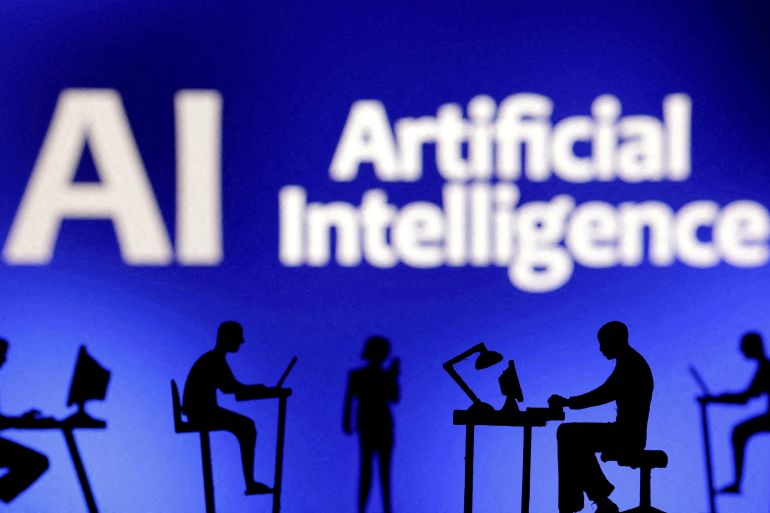AI needs ‘global governance’, cannot be left to market, UN panel says
Expert body makes seven recommendations on regulating AI, including establishment of fund to help developing countries.
The development of AI has prompted discussion of its potential benefits and risks [Dado Ruvic/Reuters]Published On 19 Sep 202419 Sep 2024
There is an “irrefutable” need for global governance of artificial intelligence and its development cannot be left to the “whims” of the market alone, a United Nations advisory body has warned.
While national governments will play a crucial role in regulating AI, the borderless nature of the technology necessitates a “global approach”, the High-level Advisory Body on Artificial Intelligence said in a report on Thursday.
“The accelerating development of AI concentrates power and wealth on a global scale, with geopolitical and geoeconomic implications,” the 39-member panel said.
“Moreover, no one currently understands all of AI’s inner workings enough to fully control its outputs or predict its evolution. Nor are decision-makers held accountable for developing, deploying or using systems they do not understand.”
The advisory body, which was created by UN Secretary-General Antonio Guterres in October, made seven recommendations in the report, including the establishment of an AI data framework to boost transparency and accountability and a fund to help developing countries benefit from developments in the technology.
“Many countries face fiscal and resource constraints limiting their ability to use AI appropriately and effectively,” the panel said.
“Despite any capacity development efforts, some may still be unable to access training, compute, models and training data without international support.”
The body, however, stopped short of recommending the creation of a new international agency to govern the development and rollout of AI.
“If the risks of AI become more serious, and more concentrated, it might become necessary for Member States to consider a more robust international institution with monitoring, reporting, verification, and enforcement powers,” it said.
Discussion of the potential risks and benefits of AI has exploded since the 2022 release of ChatGPT, the AI-powered chatbot capable of producing human-like responses to users’ questions.
